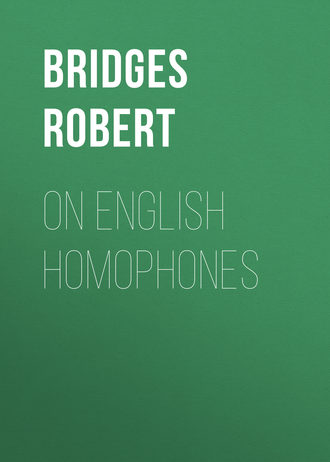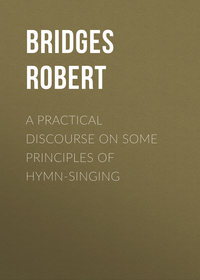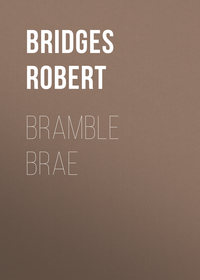 полная версия
полная версияOn English Homophones
Punnage.
In talking with friends the common plea that I have heard for homophones is their usefulness to the punster. 'Why! would you have no puns?' I will not answer that question; but there is no fear of our being insufficiently catered for; whatever accidental benefit be derivable from homophones, we shall always command it fully and in excess; look again at the portentous list of them! And since the essential jocularity of a pun (at least when it makes me laugh) lies in a humorous incongruity, its farcical gaiety may be heightened by a queer pronunciation. I cannot pretend to judge a sophisticated taste; but, to give an example, if, as I should urge, the o of the word petrol should be preserved, as it is now universally spoken, not having yet degraded into petr'l, a future squire will not be disqualified from airing his wit to his visitors by saying, as he points to his old stables, 'that is where I store my petrel', and when the joke had been illustrated in Punch, its folly would sufficiently distract the patients in a dentist's waiting-room for years to come, in spite of gentlemen and chauffeurs continuing to say petrol, as they do now; nor would the two petr'ls be more dissimilar than the two mys.
Play on words.
Puns must of course be distinguished from such a play on words as John of Gaunt makes with his own name in Shakespeare's King Richard II.
K. What comfort man? How is't with aged Gaunt?
G. O, how that name befits my composition!
Old Gaunt indeed, and gaunt in being old, &c.
where, as he explains,
Misery makes sport to mock itself.
This is a humorous indulgence of fancy, led on by the associations of a word; a pun is led off by the sound of a word in pursuit of nonsense; though the variety of its ingenuity may refuse so simple a definition.
An indirect advantage of homophones.
It is true that a real good may sometimes come indirectly from a word being a homophone, because its inconvenience in common parlance may help to drive it into a corner where it can be retained for a special signification: and since the special significance of any word is its first merit, and the coinage of new words for special differentiation is difficult and rare, we may rightly welcome any fortuitous means for their provision. Examples of words specialized thus from homophones are brief (a lawyer's brief), hose (water-pipe), bolt (of door), mail (postal), poll (election), &c.11
2. That English is exceptionally burdened with homophonesThis is a reckless assertion; it may be that among the languages unknown to me there are some that are as much hampered with homophones as we are. I readily grant that with all our embarrassment of riches, we cannot compete with the Chinese nor pretend to have outbuilt their Babel; but I doubt whether the statement can be questioned if confined to European languages. I must rely on the evidence of my list, and I would here apologize for its incompleteness. After I had patiently extracted it from the dictionary a good many common words that were missing occurred to me now and again, and though I have added these, there must be still many omissions. Nor must it be forgotten that, had obsolete words been included, the total would have been far higher. That must plainly be the case if, as I contend, homophony causes obsolescence, and reference to the list from Shakespeare in my next section will provide examples of such words.
Otto Jespersen12 seems to think that the inconvenience of homophones is so great that a language will naturally evolve some phonetic habit to guard itself against them, although it would otherwise neglect such distinction. I wish that this admirable instinct were more evident in English. He writes thus of the lists of words which he gives 'to show what pairs of homonyms [homophones] would be created if distinctions were abolished that are now maintained: they [the lists] thus demonstrate the force of resistance opposed to some of the sound-changes which one might imagine as happening in the future. A language can tolerate only a certain number of ambiguities arising from words of the same sound having different significations, and therefore the extent to which a language has utilized some phonetic distinction to keep words apart, has some influence in determining the direction of its sound-changes. In French, and still more in English, it is easy to enumerate long lists of pairs of words differing from each other only by the presence or absence of voice in the last sound; therefore final b and p, d and t, g and k, are kept rigidly apart; in German, on the other hand, there are very few such pairs, and thus nothing counterbalances the natural tendency to unvoice final consonants.'
3. That homophones are self-destructive and tend to become obsolete.
For the contrary contention, namely, that homophones do not destroy themselves, there is prima facie evidence in the long list of survivors, and in the fact that a vast number of words which have not this disadvantage are equally gone out of use.
Causes of obsolescence.
Words fall out of use for other reasons than homophony, therefore one cannot in any one case assume that ambiguity of meaning was the active cause: indeed the mere familiarity of the sound might prolong a word's life; and homophones are themselves frequently made just in this way, for uneducated speakers will more readily adapt a familiar sound to a new meaning (as when my gardener called his Pomeranian dog a Panorama) than take the trouble to observe and preserve the differentiation of a new sound. There is no rule except that any loss of distinction may be a first step towards total loss.13
It is probable that the working machinery of an average man's brain sets a practical limit to his convenient workable vocabulary; that is to say, a man who can easily command the spontaneous use of a certain number of words cannot much increase it without effort. If that is so, then, as he learns new words, there will be a tendency, if not a necessity, for him to lose hold of a corresponding number of his old words; and the words that will first drop out will be those with which he had hitherto been uncomfortable; and among those words will be the words of ambiguous meaning.
No direct proof
It is plain that only general considerations can be of value, unless there should be very special evidence in any special case; and thus the caution of Dr. Henry Bradley's remarks in note on page 19.
I remember how I first came to recognize this law; it was from hearing a friend advocating the freer use of certain old words which, though they were called obsolete and are now rarely heard, yet survive in local dialects. I was surprised to find how many of them were unfit for resuscitation because of their homophonic ambiguity, and when I spoke of my discovery to a philological friend, I found that he regarded it as a familiar and unquestioned rule.
But to prove this rule is difficult; and as it is an impossible task to collect all the obsolete words and classify them, I am proposing to take two independent indications; first to separate out the homophones from the other obsolete words in a Shakespearian glossary, and secondly, to put together a few words that seem to be actually going out of use in the present day, that is, strictly obsolescent words caught in the act of flitting.
Obsolescence defined.
Obsolescence in this connexion must be understood only of common educated speech, that is, the average speaker's vocabulary. Obsolescent words are old words which, when heard in talk, will sound literary or unusual: in literature they can seem at home, and will often give freshness without affectation; indeed, any word that has an honourable place in Shakespeare or the Bible can never quite die, and may perhaps some day recover its old vitality.
Evidence of obsolescence.
The best evidence of the obsolescence of any word is that it should still be frequently heard in some proverb or phrase, but never out of it. The homophonic condition is like that of aural and oral, of which it is impossible to make practical use.14 We speak of an aural surgeon and of oral teaching, but out of such combinations the words have no sense. It happens that oral teaching must be aural on the pupil's side, but that only adds to the confusion.
In deciding whether any obsolete homophone has been lost by its homophony, I should make much of the consideration whether the word had supplied a real need, by naming a conception that no other word so fitly represented; hence its survival in a proverb is of special value, because the words of proverbs are both apt and popular; so that for the disuse of such a word there would seem to be no other cause so likely and sufficient as damage to its signification.
The glossary is relied on to contain, besides its other items, all the obsolete words: the homophones separated out from these will show various grades of obsolescence, and very different values as examples bearing on the question at issue.
Table of homophones taken from among the obsolete words in Cunliffe's 'A New Shakespearean Dictionary,' Blackie, 1910.
ancient: replaced by ensign.
bate = remit.
beck = a bow of the head: preserved in 'becks and nods', mutual loss with beck = rivulet.
boot = to profit: Sh. puns on it, showing that its absurdity was recognized.
bottle (of hay): preserved in proverb.
bourne = streamlet: preserved in sense of limit by the line of Sh. which perhaps destroyed it.
breeze = gadfly.
brief (subs.): now only as a lawyer's brief.
brook (verb).
buck = to steep (linen) in lye.
cote: as in sheepcote.
dole = portion, and dole = sorrow: probably active mutual destruction; we still retain 'to dole out'.
dout.
dun (adj.): now only in combination as dun-coloured.
ear = to plough.
fain and feign: prob. mutual loss due to undefined sense of fain. n.b. fane also obsolete.
feat (adj.) and featly: well lost.
fere.
fit = section of a poem.
flaw: now confined to a flaw in metal, &c.
fleet (verb) and fleeting, as in the sun-dial motto, 'Time like this shade doth fleet and fade.'
foil: common verb, obsolete.
gest: lost in jest.
gird = to scoff: an old well-established word.
gout = a drop of liquor.
gust = taste (well lost).
hale = haul (well lost).
hight = named.
hoar: only kept in combination, hoar-frost, hoar hairs.
hose: lost, though hosier remains, but specialized in garden-hose, &c.
hue: not now used of colour.
imbrued (with blood): prob. lost in brewed.
jade: almost confined to jaded(?).
keel = cool.
list: as in 'as you list'.
mail: now only in combination, coat of mail, &c.
marry!
mated = confused in mind (well lost).
meed: lost in mead = meadow (also obs.) and mead=metheglin.
mete and metely = fitting, also mete in 'mete it out', both lost in meet and meat.
mere (subs.).
mouse (verb): to bite and tear.
mow = a grimace.
muse = to wonder: lost in amuse and Muse.
neat = ox.
ounce = pard.
pall = to fail.
peak: survives only in 'peak and pine' and in peaky.
pelting = paltry, also pelt = a skin, lost.
pill = to plunder.
pink = ornamental slashing of dress.
poke = pocket.
poll = to cut the hair.
quarry (as used in sport).
quean = a woman.
rack (of clouds).
raze (to the ground). The meaning being the very opposite of raise, the word raze is intolerable.
rede = counsel, n.b. change of meaning.
rheum: survives in rheumatic, &c.
scald = scurvy (adj.).
sleave = a skein of silk, 'The ravelled sleave of care', usually misinterpreted, the equivocal alternative making excellent sense.
souse (verb): of a bird of prey swooping.
speed: as in 'St. Francis be thy speed' = help, aid.
stale = bait or decoy (well lost).
tarre: to 'tarre a dog on' = incite.
tickle = unstable.
tire = to dress (the hair, &c.).
vail = to let fall.
wreak.
Besides the above may be noted
wont (sub.): lost in won't = will not.
fair: Though we still speak of 'a fair complexion' the word has lost much of its old use: and the verb to fare has suffered; we still say 'Farewell', but scarcely 'he fares ill'; also to fare forth is obsolete.
bolt = to sift, has gone out, also bolt in the sense of a missile weapon; but the weapon may have gone first; we still preserve it in 'a bolt from the blue', a thunder-bolt, and 'a fool's bolt is soon shot', and we shoot the bolt of a door.
barm: this being the name of an object which would be familiar only to brewers and bakers, probably suffered from the discontinuance of family brewing and baking. It would no longer be familiar, and may possibly have felt the blurring effect of the ill-defined balm, which word also seems rarely used. In the South of England few persons now know what barm is.
arch: adj., probably obsolescent.
There are also examples of words with the affix a-, or initials simulating that affix, thus:
aby: lost in abide, with which it was confused.
abode = bode (? whether ever in common use).
accite: lost in excite.
assay: quite a common word, lost in say (?)
atone: lost in tone.
and thus attempt, attaint, attest, avail, all suffered from tempt, taint, test, veil, whereas attend seems to have destroyed tend.
Table of homophones that may seem to be presently falling out of use. 15
ail.
alms.
ascent.
augur (v.).
barren.
bate.
bier.
bray (pound).
bridal.
broach.
casque.
cede.
cession.
cite.
clime.
corse.
cruse.
dene.
dun (colour).
desert.
fain.
fallow.
feign.
fell (skin).
flue (velu).
fray (sub.).
fry (small-).
gait.
gambol.
gin (snare).
gird (abuse).
gore (blood).
hart.
horde.
hue (colour).
isle.
lea.
lessen.
let (hinder).
lief.
main.
march (boundary).
meed.
mien.
mote.
mourn.
mute (of birds).
neat (animal).
ore.
pale (enclosure).
pall (v.).
pen (enclose).
pelt (skin).
pile (hair).
pink (v.).
pulse (pease).
quean.
rail (chide).
raze.
reave.
reck.
repair (resort).
rheum.
rood.
rue.
sack (v.).
sage (adj.).
sallow (willow).
sere.
soar.
spray (sprig).
still (adj. n.b. keep still).
stoup.
surge.
swift.
teem.
toil (snare).
vane.
van (fan).
vail (v.).
wage (war).
wain.
ween.
whit.
wight.
wile.
wrack.
wreak.
wot.
aught.
4. That the loss due to homophony threatens to impoverish the languageNew words are being added to the dictionary much faster than old words are passing out of use, but it is not a question of numbers nor of dictionaries. A chemist told me that if the world were packed all over with bottles as close as they could stand, he could put a different substance into each one and label it. And science is active in all her laboratories and will print her labels. If one should admit that as many as ninety-nine per cent. of these artificial names are neither literary nor social words, yet some of them are, since everything that comes into common use must have a name that is frequently spoken. Thus baik, sackereen, and mahjereen are truly new English word-sounds; and it may be, if we succumb to anarchical communism, that margarine and saccharine will be lauded by its dissolute mumpers as enthusiastically as men have hitherto praised and are still praising butter and honey. 'Bike' certainly would have already won a decent place in poetry had it been christened more gracefully and not nicknamed off to live in backyards with cab and bus. The whole subject of new terms is too vast to be parenthetically handled, and I hope that some one will deal with it competently in an early publication of the S.P.E. The question must here remain to be determined by the evidence of the words in the table of obsoletes, which I think is convincing; my overruling contention being that, however successful we may be in the coinage of new words (and we have no reason to boast of success) and however desirable it is to get rid of some of the bad useless homophones, yet we cannot afford to part with any old term that can conveniently be saved.
We have the best Bible in the world, and in Shakespeare the greatest poet; we have been suckled on those twin breasts, and our children must have degenerated if they need asses' milk. Nor is it only because the old is better than the new that we think thus. If we speak more proudly of Trafalgar than of Zeebrugge, it is not because Trafalgar is so far finer a sounding word than Zeebrugge, as indeed it is, nor because we believe that the men of Nelson's time were better than our men of to-day, we know they were not, but because the spirit that lives on ideals will honour its parents; and it is thinking in this way that makes noble action instinctive and easy. Nelson was present at Zeebrugge leading our sailors, as Shakespeare is with us leading our writers, and no one who neglects the rich inheritance to which Englishmen are born is likely ever to do any credit to himself or his country.
5. That the South English dialect is a direct and chief cause of homophonesEvidence of Jones' dictionary.
Evidence of the present condition of our ruling educated speech in the South of England I shall take from Mr. Daniel Jones' dictionary,16 the authority of which cannot, I think, be disputed. It is true that it represents a pronunciation so bad that its slovenliness is likely to be thought overdone, but there is no more exaggeration than any economical system of phonetic spelling is bound to show. It is indeed a strong and proper objection to all such simplifications that they are unable to exhibit the finer distinctions; but this must not imply that Mr. Jones' ear is lacking in delicate perception, or that he is an incompetent observer. If he says, as he does say, that the second syllable in the words obloquy and parasite are spoken by educated Londoners with the same vowel-sound (which he denotes by ə, that is the sound of er in the word danger), then it is true that they are so pronounced, or at least so similarly that a trained ear refuses to distinguish them [óblerquy, párersite].
To this an objector might fairly reply that Mr. Jones could distinguish the two sounds very well if it suited him to do so; but that, as it is impossible for him to note them in his defective phonetic script, he prefers to confuse them. I shall not lose sight of this point,17 but here I will only say that, if there really is a difference between these two vowels in common talk, then if Mr. Jones can afford to disregard it it must be practically negligible, and other phoneticians will equally disregard it, as the Oxford Press has in its smaller dictionary.
Its trustworthiness.
I suppose that thirty years ago it would have been almost impossible to find any German who could speak English so well as to pass for a native: they spoke as Du Maurier delighted to represent them in Punch. During the late war, however, it has been no uncommon thing for a German soldier to disguise himself in English uniform and enter our trenches, relying on his mastery of our tongue to escape suspicion; and it was generally observed how many German prisoners spoke English like a native. Now this was wholly due to their having been taught Southern English on Mr. Jones' model and method.
Again, those who would repudiate the facts that I am about to reveal, and who will not believe that in their own careless talk they themselves actually pronounce the words very much as Mr. Jones prints them,18 should remember that the sounds of speech are now mechanically recorded and reproduced, and the records can be compared; so that it would betray incompetence for any one in Mr. Jones' position to misrepresent the facts, as it would be folly in him to go to the trouble and expense of making such a bogus book as his would be were it untrue; nor could he have attained his expert reputation had he committed such a folly.
Again, and in support of the trustworthiness of the records, I am told by those concerned in the business that for some years past no Englishman could obtain employment in Germany as teacher of English unless he spoke the English vowels according to the standard of Mr. Jones' dictionary; and it was a recognized device, when such an appointment was being considered, to request the applicant to speak into a machine and send the record by post to the Continent; whereupon he was approved or not on that head by the agreement of the record with the standard which I am about to illustrate from the dictionary.
All these considerations make a strong case for the truth of Mr. Jones' representation of our 'standard English', and his book is the most trustworthy evidence at my disposal: but before exhibiting it I would premise that our present fashionable dialect is not to be considered as the wanton local creator of all the faults that Mr. Jones can parade before the eye. Its qualities have come together in various ways, nor are the leading characteristics of recent origin. I am convinced that our so-called standard English sprang actively to the fore in Shakespeare's time, that in the Commonwealth years our speech was in as perilous a condition as it is to-day, and at the Restoration made a self-conscious recovery, under an impulse very like that which is moving me at the present moment; for I do not look upon myself as expressing a personal conviction so much as interpreting a general feeling, shared I know by almost all who speak our tongue, Americans, Australians, Canadians, Irish, New Zealanders, and Scotch, whom I range alphabetically lest I should be thought to show prejudice or bias in any direction. But this is beyond the present purpose, which is merely to exhibit the tendency which this so-called degradation has to create homophones.




